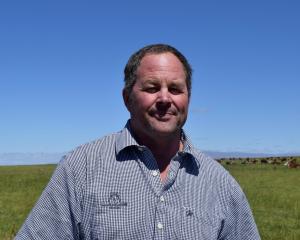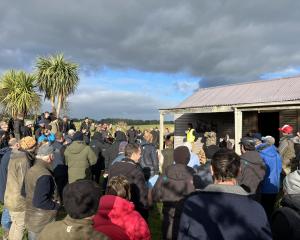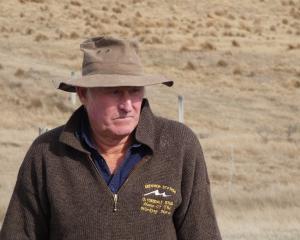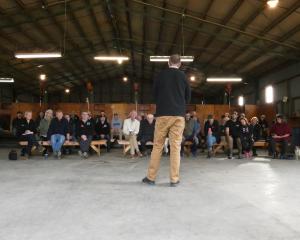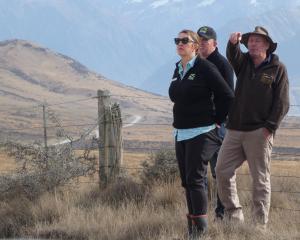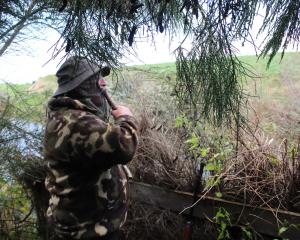
He told about 50 farmers and industry people the government was focused on getting out in front of farmers during a government woolshed meeting at Mt Somers Station in Mid Canterbury.
"We know that farmers have been under a huge pressure previously.
"We’ve talked a big game as collective parties and Opposition outside of Parliament in terms of the things we want to achieve, so we want to be held accountable for that and we want to communicate to you what we are doing and we want feedback back."
The same problems were often emerging at meetings around the country by Agriculture Minister Todd McClay and Associate Minister of Agriculture Andrew Hoggard.
"We will get some common themes coming back as to where we might have gone too far or not gone far enough and get a truth check as to what we are doing.
"First of all we recognise that things are really tough at the moment, confidence condensed with difficult climatic conditions obviously across the country including here in Mid Canterbury, we’ve got high interest rates and — especially in sheep and beef — we’ve got very low returns putting enormous pressure on."
The government had promised to cut compliance, take as much cost out as possible and put more flexibility back in.
This could be seen in the latest and next tranche of RMA reforms, initially with strong signals sent to regional councils about emitter grazing regulations and low slope maps.
Mr Patterson, who is also minister for rural communities, said the concerns of farmers about livestock emissions and evolving science had been taken on board for future targets.
"The thing that is probably keeping me awake at the moment probably more than anything I’m involved is the state of our rural healthcare which is teetering in some places in particular so there’s a lot of focus on that."
Another concern was strong wool and they were looking at how the government might play a role in lifting its performance and returns.
"It actually isn’t so much about wool per se, it’s about the profitability of hill country sheep and beef farming and the rural communities they support."
South Canterbury farmer Nicky Hyslop asked how the government would give direction to regional councils.
Mr Patterson said that was a challenge because the old rules still operated and there had been a mixed reaction by councils around the country with some "doubling down" and others unwilling to push on until they saw what the new rules looked like.
A legislative process had to be followed before changes could be made.
The government had to be careful that a one-size-fits-all model was avoided so local solutions were found for local problems.
Questions were levelled at him about how the government would address farmer profitability.
"I’m a sheep farmer myself and I know the feeling when you get the wool cheque and feeling of despondency.
"As much as anything you produce this magnificent fibre and how could we not [get] a sustainable price point."
The only way to do that was by increasing demand.
There was a big push back against plastics and micro-plastics, and their environmental damage.
Impressive developments in acoustic wool, interior furnishings and a breakthrough in wool-sourced pigments were the only way it could be done.
A pathway had to emerge over the next six months.
"We are leading by example as part of the National coalition agreement to put wool back in buildings, so social housing, schools and that type of thing.
"That’s working its way through the government building process."
Other questions centred on unworkable and expensive regulations such as stock exclusion rules, consent conditions to farm, border restrictions preventing farm products entering New Zealand, water schemes and water quality management, wilding pines, council numbers and rural banking with unfair interest rates.
He was told the "brutal" tightening of visa applications for low skilled worker numbers would cause problems for fruit picking and dairy shed work, and an exception should be made for the primary industry.
Mr Patterson said the government was determined to "get things done" and the fast tracking of legislation had the ability to transform the economy.



